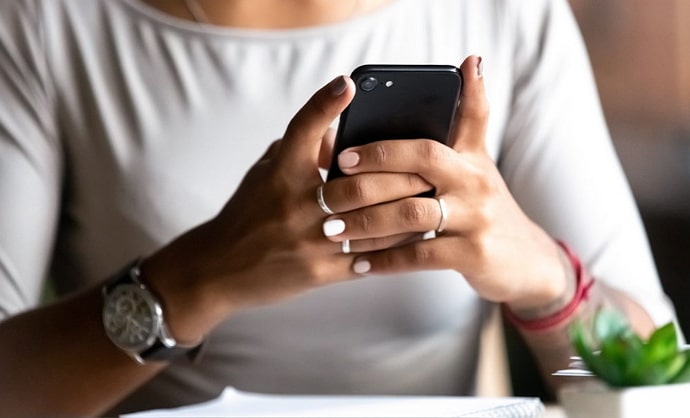If you’ve learned another language after age 13, you might know that learning the basic vocabulary of a language is the bare minimum. The real challenge is to talk seamlessly without sounding like a foreigner and understand a native speaker. The most important factor in communication that we use in more than 90% of conversations but never address consciously is tone. Even the slight lilt at the end of a question makes it a question rather than a statement.

For example, “he is okay” and “he is okay?” are both simple statements; the question mark is the only thing that makes the latter statement a question. Written down, it’s obviously a question, so listening and speaking a language is important instead of just writing and reading.
You already know that this is the least of what tone is used for. For example, “good for you” can be interpreted differently depending on the tone. It’s generally spoken in a sarcastic, derogatory, and jealous context.
If you tell someone who doesn’t like you about your great job, they’ll say “good for you,” with undertones of “I don’t care” and “don’t rub your happiness and success in my face.” When you tell your sister, she’ll say, “that’s so good for you; I’m so happy for you!” You can feel her contagious excitement and happiness in the way they speak.
So, practice speaking a language in the mirror, and then listen to how Google translate or native speakers say the same sentence with the same intentions.
Always think about why the person might be saying it, and always expect the sentence to have a negative annotation unless you know them closely.
Don’t hesitate to Google even the most basic questions and how they can be answered. It’s best to always have the appropriate and witty answers for simple questions since most people don’t think about them much. Only these small but efficient measures can truly set you apart.
Today’s blog will discuss how to respond to “Where are you?”
How to Reply to “Where Are You”
“Where are you” is a simple question that requires no explanation.
The speaker simply wants to know your exact location at that time. Maybe they’re planning a surprise, or you’re meeting up with them. They might be asking because they want to pick you up or want you to pick them up. Lastly, it could be a case of simple curiosity.
The answer depends largely on the tone, context, and relationship with the speaker. Is it your best friend asking so that you can go to a party together? Or is it your boss using an accusatory tone to let you know you’ve messed up majorly at work? Maybe it’s your mother’s voice of concern since you did lie about getting off early to put in more work.
All these situations warrant different answers. Sure, you could go for the classic “I’m at work/home/the gym/on a run.”
However, it’s not always the wisest move to disclose your exact location on a call unless necessary. You’ll also learn that having your current move undisclosed is always advantageous. It’ll allow you to decline any plans or tasks you don’t wish to indulge in.
For example, let’s say you’ve just gotten home, and your friends ask you to meet them at a bar. Not only are you tired and want to sleep, but you’ve recently begun to question whether they care about you.
So, if you tell them you’re at home, they’ve got one solid reason why you should attend. However, if you tell them you’re leaving your office and it’ll take too long, they’ll automatically let you off the hook.
Bear in mind that this could backfire if they say they can pick you up from work itself. You can respond by saying it’ll take you another ten minutes, and you’ll be too tired to be fun after that.
How to respond to “Where are you?” when you don’t want to answer the question?
Of course, if you think the other person is trustworthy, your reply can be your location. However, if you don’t wish for them to know where you are or want to know their motive, you need to think about it.
What can you say to them to avoid saying your location while ensuring they don’t find you rude and finding out their motive? Well, don’t worry; it sounds much more difficult in theory than it is practically. Here are a few templates you can use to tailor the perfect reply:
“Has something happened?”
“What’s wrong? Is it something important?”
“I’m just chilling. Everything alright?”
“Pardon me, but that information is highly classified. Might I know how it’ll be of assistance to you, sir/madam?” Not only will it achieve what you want, but it will also get a laugh out of them.
All three of these statements can be used to avoid replying and insulting them simultaneously while getting the reason, too. However, if you aren’t close enough with this person to care about how they might feel, you can just decline and inquire politely but firmly.
The people these responses can fit with are acquaintances, especially co-workers and people you have mutual friends with.
“Why do you ask?”
“Is my location relevant to the context of this call?”
“Can I know why that’s important?”
“Is there a reason why my location is important here?”
When asked by a virtual stranger, you are not obligated to be particularly courteous. You can bypass the niceties and just tell them why their question is inappropriate.
“I don’t feel comfortable answering that. Why is my location important?”
“I can’t disclose my location over the phone like this, nor do I think that it’s relevant here.”
“Haha. I’m not gonna tell you that.”
We hope you’ve gotten the answer you were looking for. You can edit these templates to whichever extent works in your case. Some people might be stubborn, so when you encounter such people, drop all politeness and tell them off.
Takeaway
Communicating with people is an art; with enough research and practice, you can master it to your advantage. You can get next to anything out of anyone while not disclosing any of your information.
Today’s blog has discussed how to respond to “Where are you?,” especially when you don’t want to tell them the answer.
If we’ve missed any relevant responses or scenarios, tell us in comments section!
Also Read:





 Bitcoin
Bitcoin  Ethereum
Ethereum  Tether
Tether  XRP
XRP  Solana
Solana  USDC
USDC  Dogecoin
Dogecoin  Cardano
Cardano  TRON
TRON